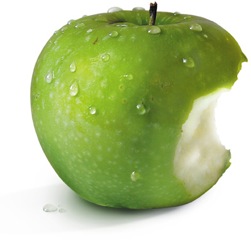According to Loren Cordain, PH.D., Professor of exercise and sports science at Colorado State University, 99.9% of our genes were formed before the development of agriculture, and thefore "our physiology is fundamentally the same as that of people from the Paleolithic Era, which refers to the human evolutionary time period spanning from roughly 2.6 million to about ten thousand years ago--before the dawn of agriculture."
The hunter-gatherer diet, which we would be wise to adopt given our physiological similarities, consisted of the following:
- High-quality animal source protein
- cooked and uncooked (including organ meats of wild game, all clean), eggs, and seafood
- hormone-, antibiotic-, and pesticide-free, naturally organic, and range-fed with no genetic alterations
- Examples: Exclusively grass-fed and finished beef, lamb, venison, and buffalo meat
- Moderately high fat
- (estimated to have been roughly ten times our modern intake)
- Including varieties of saturated, monosaturated, and omega-3 fats with balanced quantities of omega-6 fats (ratio of omega-6 to omega-3 should be 4:1), together with abundant fat-soluble nutrients
- Sources of Omega 3 fatty acids: Wild-caught seafood from particularly cold water, such as salmon, halibut, cod, herring, mackerel, sardines, and albacore tuna (in small amounts)
- Significant variety of vegetables (seasonally available)
- Limited quantities of tart, wild fruits (mostly berries; seasonally available)
- Some raw nuts and seeds
*The controlled use of fire is a relatively recent development. Most starchy roots (ex. potatoes), tubers, and legumes would have been too dangerous to consume witout extensive cooking and therefore were not part of our early ancestors' diets.
Paleolithic Food Pyramid
Here are a few key points to keep in mind:
- We don't even have to eat any sugar or starch of any kind at all in order to be optimally healthy
- There is abundant evidence that many modern disease processes, including those resulting in cardiovascular disease, elevated trigylceride levels, obesity, hypertension, diabetes, hypoglycemia, and cancer, to name a few, are the product not of excess natural fat in the diet, but of excess carbohydrates (I will expound on this in future posts)
- Reduced fat and caloric intake and frequent use of low caloric food products have been associated with a paradoxical increase in the prevalence of obesity
- Natural dietary fat is not the enegy--there is zero correlation amond animal fat intake, atherosclerotic disease and serum choloesterol levels
- The problem is not natural dietary fat, but refined "Franken-foods," vegetable or hydrogenated trans fats
- Read all labels carfeully and avoid commercial canola and soybean oils as well as all foods prepared with them (e.g., tortillas, potato chips, fries, boxed cookies, microwave popcorn, commercial breads, fast foods)
This book is full of fascinating and compelling evidence to support this diet and I recommend it to everyone interested in finding solutions to their health concerns--from fatigue and carbohydrate cravings to diabetes and heart disease.
It is a bit complicated, filled with physiological terminology and biochemical processes, so to get you started, here is a simple way of thinking about your new diet:
"It certainly stands to reason that if something on the grocery store shelf would not have looked like food to someone walking around with a loincloth and a spear forty or fifty thousand years ago, it probably isn't food for us now, either" (Eaton et. al. 1997).



I've heard from some people that they are having trouble adding comments and following this page. To add a comment click on "# comments". You should be able to post a comment (make sure you are signed in to your email account). Then click "Post Comment."
ReplyDeleteTo follow, click "Follow" at the top right of the page and follow the prompts.
Thanks for this post! Can't wait to get started.
ReplyDeleteJust about to go grocery shopping so will now keep this in mind. Thanks!
ReplyDeleteThis is great! I had heard this but would love to read this book! Thanks for the post.
ReplyDelete